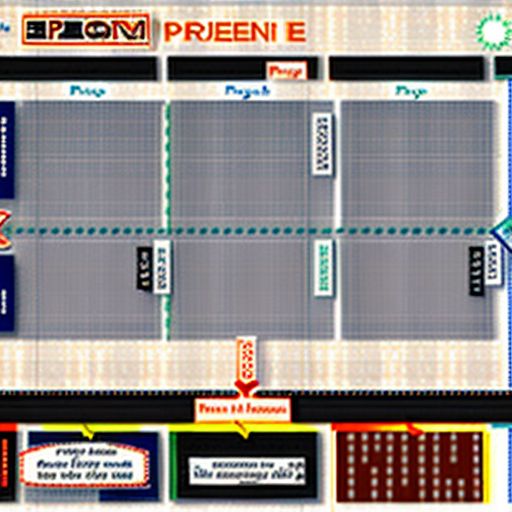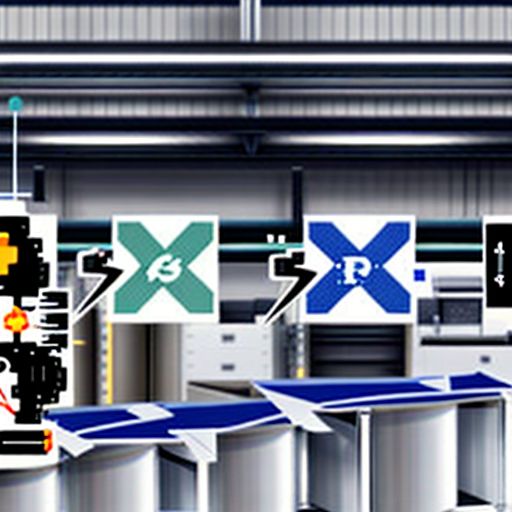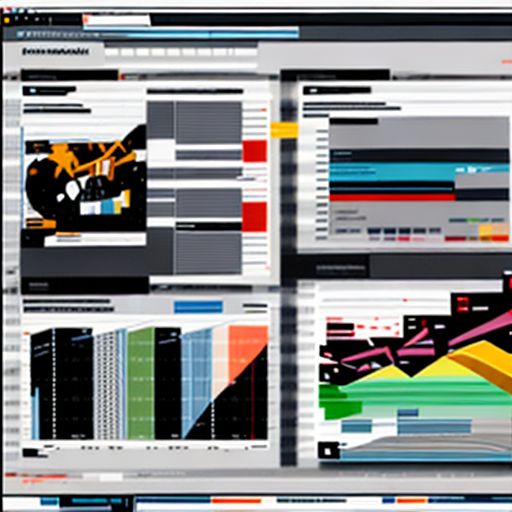Imagine this: you’re leading a company on the verge of growth, ready to streamline operations and boost efficiency. An ERP system seems like the perfect solution – a powerful software suite to manage everything from inventory to financials. But then comes the implementation… Suddenly, you’re facing a mountain of tasks, potential risks, and the daunting reality of project management.
That’s where a rock-solid Erp System Implementation Project Plan comes in. It’s the roadmap to your ERP success, outlining every step from initial assessment to go-live and beyond.
Understanding Erp System Implementation Project Plans
At its core, an ERP system implementation project plan is a comprehensive document that defines the scope, timeline, resources, and methodology for deploying your new ERP system. It acts as a single source of truth for all stakeholders, ensuring everyone is aligned and working towards the same goal: a smooth and successful ERP implementation.
Why is an Erp System Implementation Project Plan Critical?
Think of it like building a house. You wouldn’t start laying bricks without a detailed blueprint, right? Similarly, an ERP implementation project plan is your blueprint for success. Here’s why it’s indispensable:
- Minimizes Risks: By anticipating potential roadblocks and outlining mitigation strategies, you can avoid costly delays and setbacks.
- Keeps You on Track: A well-defined plan with clear milestones, deliverables, and deadlines ensures the project stays on schedule and within budget.
- Enhances Communication: The plan acts as a central communication tool, keeping all stakeholders informed and on the same page.
- Provides Measurable Progress: With defined goals and metrics, you can track progress effectively and make data-driven decisions along the way.
Key Components of an Effective Erp System Implementation Project Plan
A comprehensive ERP system implementation project plan should encompass several crucial elements:
1. Project Initiation & Planning:
- Define Project Scope: Clearly outline the project’s goals, objectives, and deliverables.
- Assemble Your Team: Identify key stakeholders, assign roles and responsibilities, and establish clear lines of communication.
- Develop a Timeline: Create a realistic timeline with milestones, deadlines, and dependencies between tasks.
- Establish a Budget: Determine the total cost of ownership, including software, hardware, implementation services, and ongoing support.
2. Business Process Analysis & Design:
- Document Current Processes: Map out your existing business processes to identify areas for improvement and automation.
- Design Future State Processes: Re-engineer processes to align with the new ERP system’s capabilities and best practices.
- Develop Data Migration Strategy: Plan how data will be cleansed, transformed, and migrated from legacy systems to the new ERP.
3. System Configuration & Development:
- Configure ERP Software: Customize the ERP system’s settings, modules, and workflows to meet your specific business needs.
- Develop Customizations: If required, develop any necessary custom reports, integrations, or functionalities.
4. Testing & Training:
- Develop Test Plans: Create comprehensive test cases to ensure the system functions as expected.
- Conduct User Training: Provide thorough training to end-users on how to effectively use the new ERP system.
5. Deployment & Go-Live:
- Execute Data Migration: Migrate data from legacy systems to the new ERP environment.
- Go-Live Support: Provide on-site or remote support during and after the go-live date to address any issues.
6. Post-Implementation & Support:
- Monitor System Performance: Track key performance indicators (KPIs) to ensure the system is meeting expectations.
- Provide Ongoing Support: Establish a support process for addressing user issues, bug fixes, and system updates.
erp.bartenderqh.com/wp-content/uploads/2024/07/erp-implementation-project-plan-visual-669494.jpg" alt="ERP Implementation Project Plan Visual" width="512" height="512">ERP Implementation Project Plan Visual
Common Questions About Erp System Implementation Project Plans
- How long does it take to implement an ERP system? The implementation timeline varies depending on the project’s complexity, but it typically ranges from several months to a year or more.
- What are the biggest challenges of ERP implementation? Common challenges include resistance to change, data migration issues, inadequate training, and poor project management.
- How can I ensure a successful ERP implementation? Thorough planning, strong leadership, effective communication, user buy-in, and a reliable implementation partner are crucial for success.
Conclusion
An ERP system implementation project plan is the backbone of a smooth and successful transition to a new ERP system. By investing the time and resources upfront to develop a comprehensive plan, you’ll set your organization up for a rewarding journey of improved efficiency, data-driven decision-making, and sustainable growth.
Have any more questions about ERP system implementation project plans? Share your thoughts in the comments below!










